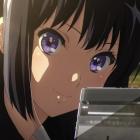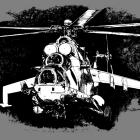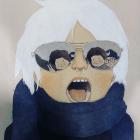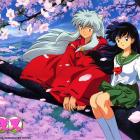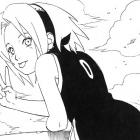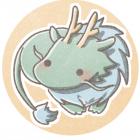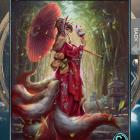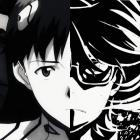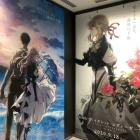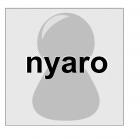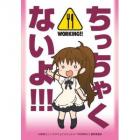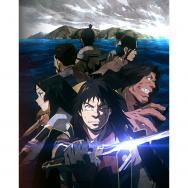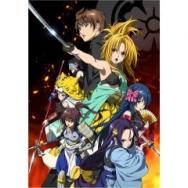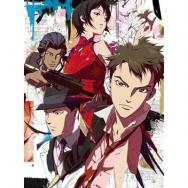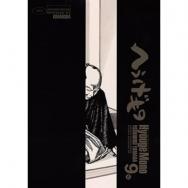蒼い✨️ さんの感想・評価
3.0
物語 : 3.5
作画 : 3.5
声優 : 4.0
音楽 : 3.0
キャラ : 1.0
状態:観終わった
歴史フィクション。
実績豊富な有名監督と豪華声優陣による名作古典のアニメ化で注目を集めた作品ですが、
作画の動き自体はアニメーターを大量につぎ込んで頑張っていますけど、引っかかる内容。
第1話での主人公のびわの平家批判の罪で子の代わりに父親を惨殺することで平家の横暴を見せつけた、
軍記物語である「平家物語」にのみ記述される虚構性の強い禿(かむろ)を用いた脚色とは違い、
「驕る平家」の象徴と言える「殿下乗合事件」を指図した史実での首謀者は平重盛でありますが、
それが「平家物語」では平家の棟梁で政治の実権を握る父・清盛の悪行であるとの歴史の歪曲があり、
重盛を持ち上げるために重盛の負の部分まで擦り付けられてしまったのが作中の清盛ですが、
アニメでは、史実での首謀者の重盛が創作上の首謀者役を押し付けられた清盛を詰問することで、
原典の「平家物語」以上に平重盛を聖人君子として更に美化された正義のイケおじとして描き、
それが茶番なのもさることながら、このアニメの実質ヒロインである徳子(重盛の妹)もまた、
権力欲が強い問題人物扱いの父・清盛に批判的である現代的な美女として描いているのに対して、
重盛や徳子と同じ血を引いているはずの平宗盛が極端に見た目も性格もバカにされて扱われていて、
清盛の子供で一人だけ遺伝子異常なのか短足・デブ・出っ歯で深海魚みたいな醜男過ぎ。
不摂生による肥満や人格をあらわす表情だけでも見た目を差別化出来るのにカリカチュアが過剰。
あの醜い姿形の宗盛が痩せて心身を鍛え直したところで重盛に似てくる姿が全く想像できませんね。
人気漫画家の荒川弘さんがアルスラーン戦記で描いたルシタニア王国の、
肥満で無能な兄王・イノケンティウス七世と精悍で有能な王弟・ギスカール。
一見似てないようで顔のパーツの共通点が多くて一応は兄弟だと認識が可能で、
血筋が同じでも生き方がそのまま容姿の違いになっている描き分けが出来ているのとは逆に、
このアニメではシンプル化してるにしてもキャラクターデザインの画力が低すぎです。
他にも源頼朝が「信長の野望・天下創世」の今川氏真みたいでひと目で分かるダメ男だったり、
旭将軍・木曽義仲が田舎者を強調しすぎて久米田康治の漫画に出てきそうなギャグタッチの、
不潔でボサボサ髪でしゃくれアゴで最低限の礼法すら無い貧乏くさいボス猿であり、
御所に乗り込んで何故か御簾を用いることなく後白河法皇に不敬な直談判をしたときも、
知性の欠片も無いガラガラの大声で狩衣を纏わずに身なりが汚いままであったり、
そもそも、信濃源氏の木曽義仲が烏帽子や冠をかぶらないのは無作法な田舎者を通り越していて、
当時の常識を現代に置き換えると、ズボンもパンツも履かずに下半身丸出しで都を練り歩いて、
皇居に押しかけて狼藉三昧の完全に頭がおかしい露出狂と同じレベルの蛮行であり、
その恥ずかしい姿で後白河法皇に直に拝謁する平民以下の意識の低さが、ありえないことであります。
かろうじて、貴人から受命するときの建膝(たてひざ)に見えなくもない描写はありましたが。
高野文子さんの原案の死んだ魚のような目で小物小物したキャラデザが不快レベルで酷いかなあ。
盛盛盛盛で誰が誰だかわかりづらい!との意見があり、少ない線で描き分けて個性を出そうとすると、
キャラ描写が極端に陳腐な記号化をされたり、兄弟といった身内でも容姿に類似性がなくて、
昭和のギャグアニメのように身体的な特徴を歪めて大げさな絵面になりますよね。
あと、サイエンスSARUの特徴的な作画だと、やっぱり平べったい。これが美しいかと言うと微妙。
平家討伐の立役者の源義経をステレオタイプなイケメンヒーローとして扱う一方で、
鎌倉幕府を開く兄・源頼朝が北条政子の言いなりの優柔不断の愚鈍で臆病なダメ人間扱いとか…。
「吾妻鏡」によると頼朝は石橋山合戦(10倍の兵力差で元から勝ち目がなかった)で、
五人張りの強弓を引いて数多くの敵を射抜いた優れた武勇の持ち主ですが、
このアニメでは、なで肩でひょろひょろした意志薄弱な惰弱者として脚色された頼朝。
これじゃ虫や蛙も殺せずにぶるぶる震えてる感じで、お飾りの総大将すら無理ですね。
自分の頭で考えることが一切出来ずに、きつい北条政子の言に自信がない表情で、
『ねえ?政子?どうしたら良ーい?』(八の字眉)
『ひゃ!?ひょえええ?』(ガクガクブルブル)
『あぁ…うん、そうする!そうするから…』(脅えたままの顔)
と頷くのが精一杯の無能な傀儡でしかないです。
この頼朝は、人目のないところで椿の枝を太刀で切り落とし続けての鬱憤晴らしで、
普段は無害そうな凡庸な顔で、おどおどと気が弱くてまともに人と会話できないくせに、
抵抗できない相手には豹変して容赦なく痛めつける人の小ささと残忍さも見せています。
時代にまきこまれた血筋以外に何も無い軽すぎる神輿キャラで、
知恵も勇気も無くて自分の意思で挙兵すら決断できないおつむの軽い人間が
実はストレスに蝕まれていて権力を握ることでつけあがって外道に豹変(覚醒)する兆候。
フィクションにおける従来の頼朝像は、
こんなアニメの如くに一見ひ弱でぼんやりしてて狂った小人物ではなくて、
猜疑心の強さと冷酷な部分は否めないものの、
政治的なビジョンを持って動いていて駆け引きにも優れていて、
公文所の別当の大江広元らとともに権謀術数を巡らせていますよね?
こっちはもう、プレイヤーが嫌いな人間の名前を間抜けな敵キャラにつけて、
最初は強気なセリフを吐かせて、劣勢になった途端に命乞いをさせた挙げ句に、
主人公一行に殺させて悪は滅びた!メデタシメデタシなイベント戦闘が存在する、
「新桃太郎伝説」の怨みの洞窟を思い出す陰気なごっこ遊びですね。
こんなものは、ギャグでも愛嬌でもないですし、
こういう貶める安っぽい脚色って、本当に必要で面白いと思いますか?
誇張まみれの人物描写の粗末さは感性に合う合わないの次元ではありません。
「鎌倉殿の13人」で大泉洋が演じる頼朝がろくでなしだから良いだろ!
とのネットでの声がありましたが片腹痛い。
大泉頼朝は女好きでコメディな脚色がありましたが、弓の腕前を見せるシーンもありますし、
政治家としての怜悧さを持ち、恨みを買うのを覚悟の上で血も涙もない鬼の道を歩みながら、
人が見てないところで弟である義経の首桶に落涙するといった人間味がありましたし、
また、源氏と北条氏の物語でありながら、敵である平宗盛へのフォローもあり、
優柔不断で繊細に過ぎるが温厚で知的な人物として宗盛は描かれていました。
ひきかえ、こちらは平家への感情移入を目的として、その他の扱いが木っ端のように軽いですし、
平家でも宗盛をただ亡くなった兄・重盛の引き立て役としての暗愚なデブとしか描いておらずに、
「平家物語」「鎌倉殿の13人」で扱われている妻子への深い愛情と言った一面すら削ぎ落として、
そもそも妻子に一切触れずに短い尺でも可能な宗盛のフォローを徹底的にやらない単純さ。
これらを見せられますと、源氏側から語られることが多い治承・寿永の乱を、
平家側から切り取った家族と情愛の話として見るにも、
禿(かむろ)や平宗盛などを始め、安直で記号的な表現が多くて、
当時の資料を少し勉強すればわかるレベルでの源氏下げの露骨さから、
平家の面々の感情も鎌倉や木曽らのしょーもない描かれ方も所詮は等しく作り物であり、
歴史文学を気取って教養を盾に利用しながらも、
強烈にバイアスがかかった虚構に過ぎないと醒めてしまいます。
一面的で簡素過ぎるキャラの造形の数々にたとえ想像力で勝手に補完するにしても限界があリ、
“美しい映像”とか“繊細な芝居”などの褒め言葉も甚だしく虚しいですね。
全11話で尺が無いせいで情報の取捨選択をせざるを得なくて、物語の切り取りで合戦の省略が多く、
清盛亡き後には実質的に平家の軍勢を支えてた平知盛や平重衡ら将の有能さがわかりづらかったり、
造り手が興味ないのが丸見えで平家随一の猛者の平教経の出番が最終回の水没シーンの3秒間のみで、
逆に平敦盛が悲劇の若武者として熊谷直実に討ち取られる散り際の描写が、
勇敢に戦って直実に傷を負わせて死んだとのアニオリ改変で贔屓が露骨なのですけど、
基本的には、弱い平家が源義経に一方的に駆逐されてメソメソ泣いてる話になっていますね。
創作は創作で史実に忠実である必要はありませんし、
この時代を扱った小説・漫画・ドラマなどの他の創作物も脚色だらけで独自性が強いですが、
このアニメでは特に、造り手の主観による美化と卑小化が両極端でキャラ付けが微妙ですね。
それをギャグアニメとして用いるならともかく、シリアスな哀歌でやるのは余分な雑味です。
善悪美醜すべてを兼ね備えているのが人間ですが、このアニメでは簡略にネタキャラ化した?
ちっぽけな弱者な頼朝や単細胞な山猿と化した義仲らの源氏の扱いの薄っぺらさと、
敢えて弱くて可哀相な人たちとして脚色して平家への同情を誘う意図が極端にあからさまで、
それで登場人物が魅力的に見えるどころか、丁寧な部分と雑な部分の温度差の激しさもあって、
視聴者への恣意的な思考誘導が露骨すぎて世界観に浸ることが出来ませんでした。
平家が滅ぼされたのは実際のところ、都落ちしたとはいえ依然脅威であって、
西国で再起されては源氏から見て面倒なことになるからです。
戦歴から見るに平家は一方的に源氏に負け続けた力無き弱者ではありません。
このアニメでの簡素で偏向の強い人物造型や演出の表現に感化されての、
繊細な乙女のような心の優しい平家をイジメる源氏への嫌悪だのといった憤りの感情移入は、
武田鉄矢が坂本龍馬を好きすぎて、幕末の多くの人物を悪く描いたり引き立て役にした、
「お~い!竜馬」を真に受けて、土佐藩主の山内容堂や上士らが陰湿で悪逆非道なクズの集まりで、
坂本龍馬を、彼一人の存在が日本史を動かした正義のヒーローだと思いこむのと全く同じですね。
大量の人員で作画と演出は頑張っていて技術的な部分では同時期のアニメでは上位でしょうけど、
印象操作を目的とした作為的なキャラデザとキャラ付けがあまりにもわざとらしく、
それが微妙なせいで源平合戦の物語としてはあまり面白くはない。
シンプルなデザインで演出がわかりやすい!との絶賛の声がネットでの常套句でありますが、
本山一城氏の著作漫画の「竹中半兵衛伝」レベルの単純なキャラ付けと貧相なキャラデザの、
そのわざとらしさが京アニっぽく動かしてる映像の芝居のレベルに追いついていないがために、
長所であるはずの高カロリーな演出だけがアンバランスに突出し過ぎて作品から浮いていますね。
否定一辺倒のようですが、展開に首を傾げつつも一話目時点では凄いとこれでも思っていたのです。
その一話目がピークで、説明台詞だらけの「鹿ケ谷の陰謀」がつまらなさすぎて一気に評価が下がり、
クール後半になると上述のヘリウムガスよりも軽い源氏の描かれ方に興ざめしつつ、
歴史のダイジェスト展開を熱が入らない目で惰性で傍観していました。
大河ドラマでも作品によって方向性が違うように、これもまた歴史を元ネタにした、
数ある小説やドラマや漫画といった創作物の横一線のひとつ止まりであって、
ただ単にそういうやり方もある止まりで、傑出したものでもないですね。
尺の長短に関係なく登場人物の色付けと人間描写の密度は、
賛否両論のある大河ドラマの「鎌倉殿の13人」と比較しても遥かに劣ります。
台詞を削って作画の情報量で補完するやりかたがあり、これまではそうやってきましたが、
今までの作品と違って今回の座組では、積み重ねられたキャラクターの造形ではなくて、
少ない出番で申し訳程度に浅くて薄い説明的な台詞や動きで手一杯のキャラが多いですね。
尺が無いから仕方ないだろ!という擁護がネットではありがちですが、それは忖度の精神。
偏向してキャラを歪めたり粗末に扱ったりをした妥協を正当化するつまらない言い訳ですね。
監督が素晴らしいスタッフと一緒に作り上げた過去の輝かしい実績の数々といった、
その色眼鏡を外して作品単体で内容を評価すると、
今作でも健在なキャラクターに動きで芝居させる技術を台無しにするレベルで、
キャラ萌えを狙ったかのようなマルチーズの擬人化が滑っている平資盛の造形も酷いですし、
平家一門で唯一顔が人外な醜男の宗盛、モミアゲの生え方がおかしいゴリラと化した平知盛など、
誇張だらけで歪な数々のキャラデザなどのせいで色褪せたしょぼくれた物に見えてしまい、
やはり監督が過去に手掛けた精緻な演出と可愛らしさが同居した作品との違いが圧倒的に大きくて、
こんな感想しか出てきませんでした。確認のために再度見比べても印象は変わりませんでした。
言っちゃ悪いですが、過去に手掛けた美少女アニメのコミカルな芝居を流用したところで、
いつまでも子供みたいで、いじめられオーラを発しているひ弱そのものな平家の公達といい、
一度見せた頬を赤らめてのぶりっ子ポーズが気色の悪い後白河法皇といい、
一応出てきたけど太ももで視聴者サービスをして掘り下げの無く、舞が美しくない静御前といい、
監督の過去の、どの作品とも違って登場人物に全く魅力がありませんし、単純につまらなかったです。
未来視を持つ主人公のびわも、仕草は「けいおん!」「たまこまーけっと」の流用ですし、
褒められてる芝居のアニメーションも、過去作品の技術を用いた下位互換ですね。
そのびわも、メタな理由で人のために何もしない、それどころか養われてる分際で労働すらしなく、
シゲモリだのトクコだのスケモリだのと平家の面々を呼び捨てにして、
タメ口でも罰せられることのない無駄飯喰らいの無礼者の居候であり
傍観者の役割を演じるだけの自発性の無い物語の人形的な配役でしかありませんでした。
最終回でやっとひとつだけ人助けをしますけどね。
初監督作品の「けいおん!」から「たまこまーけっと」と「聲の形」を経て、
アニメ表現の到達点と評された「リズと青い鳥」にいたるまで、
この作品の監督が今まで手掛けてきたものには概ね好感を持って高評価をを続けてきた自分としても、
アニメとは、膨大なスタッフの仕事を絨毯を織るようにして作品が完成しているものですので、
演出家としての監督の手腕が健在であろうとも、高野文子さんの衰えたセンスで相殺されていて、
それらチーム全体の仕事の成果物としてイマイチだと思えば相応の評価にせざるを得なく、
誰にでもですが、アニメ監督への行き過ぎた偶像視は良くはないと思うきっかけになりましたね。
数多くの受賞歴を持つ監督の才能やセンスと褒め称えられたものも実際は監督本人の能力だけでなく、
これまではデザインセンスと確固たる技術力を兼ね備えた素晴らしい実力を持っている、
例えば「聲の形」や「リズと青い鳥」で類稀なる手腕を発揮したキャラデザ担当のアニメーターや、
美術スタッフなどの人材と連携して、ひとつひとつの設定をきちんと練り込んで作っていたのと、
他にも監督の毛色の理解に努めて技術をいろいろと学んだと本人に直接言った凝り性の演出家、
(彼は2023年8月に公開の「特別編 響け!ユーフォニアム~アンサンブルコンテスト~」の副監督)
がいたように、皆で少しでも良いものを作ろうと努力を積み重ねていった成果ですね。
所変わって、今作では監督直々の仕事がクレジットされていない回の演出は、
どちらかと言うとサイエンスSARUの特徴が勝っている作風ですし、
作画カロリーが一般的なアニメより高い割に適当な部分が多い新作映像作品を観た上で、
女性アニメ監督を客寄せパンダとして演出されたプロモーションをして、
監督の名前で作品に付加価値をつけて売りたい顔出しや特典商法のやり口を見ていますと、
あっそうですか?な気分で、作品の差を抜きにしても前の職場のほうがマトモだったとも思いますね。
2014年の新宿ピカデリーでの舞台挨拶では、われわれは裏方だと御本人も仰っていました。
アニメの質の向上には多くの人間の協力が不可欠ですが、監督至上主義の制作会社の社長でもある、
プロデューサーの方針なのかアニメのキャラではなくて監督が主役扱いされてる現状には疑問ですし、
今の状況や作品内容を素直に応援しづらいです。諸行無常とは本当にこのことですね。
「リズと青い鳥」などの同じ監督の素晴らしかった過去作品の数々で口直しをしながら、
あの頃は良かったと思うのみです。2024年1月2日に「リズと青い鳥」をEテレでまた鑑賞して、
そして、「響け!ユーフォニアム3」のPVの素晴らしさに心を揺さぶられたのと、
実は前の会社からの脱却が出来てない「Garden of Remembarance」が、
ティザーPVで観た感じでは「たまこまーけっと」で観たようなシーンの焼き直しで、
原画の質の差はさておいてもキャラの表情や色使いなどの映像の表現力のあまりの見劣りに、
結局オリジナル中心で作品の方向性が「たまこまーけっと」と本質的にはさほど変わってないなら、
この人には、石原監督らのいる世界に戻って十全に手腕を発揮してほしいと思いました。
今の環境に溺れているままでは、かつてを知る者から見れば真の復活には程遠い回り道です。
現実にこの女性監督を賛辞するファンからの声は簡単なあらすじと絵の具で描いたような手の絵、
これのみでオープンにされない、やたら意識の高そうな新作映画への発言は少なくて、
美人連呼と、監督と一緒に「リズと青い鳥」を作ったアニメ会社への感謝の声が寄せられています。
「平家物語」に肯定的評価をしている現在の監督ファンの方々の思いですら結局は、
近年の作品への評価や未来への期待よりも過去の栄光への依存が目立っているのが現実。
いろいろと複雑な思いがあるのですが、こちらは見ていて虚しくなる本当に残念なアニメでした。
元々は新しい活動に納得しての応援が目的で見始めたのですが、宗旨替えをして応援継続しようにも、
素晴らしい作品と評して良い程の説得力のある内容が今回は自分には全く感じられ無かったです。
今後の新作を観ることがあれば作品ごとの個別に評価は上下しますが、
観る前から(この方に限らずですが)監督の名前を頼りにして名作扱いするのは遠慮しますね。
2024年に公開された、「きみの色」という映画も、
良い作品であって欲しかったのに正直つまらなかったですし。
過去の高評価は本人の実力とスタッフの質と両方あっての結実なのかもしれませんね。
これは前々から散々私が言っていたことですけどね。
溜め込んでいた言いたいこと=このアニメがつまらないと思う理由と偽らざる本音を、
一切呑み込まずにあらかた言い尽くしました。では、これにて!!
71





